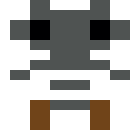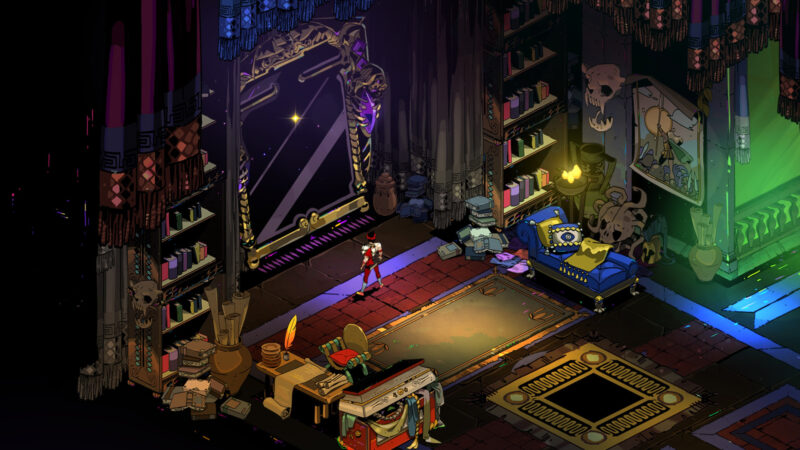Borrowed taglines and recycled designations irk me. Hades is “The Perfect Roguelike For People Who Don’t Like Roguelikes”, says GameInformer. Polygon quips, “Even roguelike haters love Hades” (and doubles down a few months later with a video called “Hades is a roguelike for roguelike haters”). Vice thinks “‘Hades’ Is the Perfect Roguelite for People Who Don’t Like Roguelites”. (Credit to PC Gamer for putting a spotlight on how widely used the phrase is.)
At this volume it comes off as an echo chamber and a schoolyard consensus. And because I am annoyed I hope to annoy other people by referring to the aphorism as HITRFPWDLR and pronouce it “hitarfeepowdolar”.
I don’t think I do the articles linked above an injustice by summarizing the attempts to delineate why HIRFPWDLR holds, as follows: it has variety, a good story, exquisite art, excellent production values and the option to focus on and the option to invest ressources in certain relationships over others smacks a bit of RPG. It’s not particularly helpful to understand what made Hades a hit with an audience beyond roguelike devotees.
Fortunately, Mark Brown of Game Maker’s Toolkit explained it better a couple of years ago.
Mark dispenses with the extensive but not particularly helpful “Berlin interpretation” of what a “roguelike” is, and boils it down to two things: Permadeath and randomly generated levels. Nevermind the ASCII characters and turn-based vs. realtime, permadeath and RNG are the characteristics that help us identify and group what is clearly a distinct set of games from the past decade or so.
For a true roguelike, he then posits, permadeath means no carryover from run to run. When you’re dead, you’re dead, and you must start from scratch. All that you have gained is in the player’s head: knowledge and routine. Roguelites, on the other hand, feature permanent unlocks that tend to make each subsequent run a little easier. By this measure Hades is definitely a roguelite, not a roguelike.
Mark also notes that some roguelites, like Dead Cells and Rogue Legacy, temper their roguelite nature with special requirements on the use of ressources earned. Both require the player to spend all gathered ressources from a run immediately. You cannot save up over several runs. If your run has not produced enough ressources for a big unlock, too bad. You must dump them and try again. This is meant to require deep expeditionary runs into difficult terrain, rather than many small trips through easy town. Hades makes no such demands. You can save all ressouces, as much as you want, until you have enough to buy.
And that, I think, is the simple key to the question asked over and over these past few months. Hades lies on the very most roguelite end of the roguelike-roguelite spectrum. That is why it escapes from the niche into the mainstream. As for why it’s succesful in that mainstream, well, yes, all those reasons quoted above are bang on. It’s just really well made.
As for the rogueliteness of Hades, I would add that the steady drip of doping Hades feeds you, continues until you’re Lance Armstrong. Supergiant pulls off the trick of making you treasure those drips like the junkie you are while at the same time making you forget that you’re competing on an uneven footing when you’re doing the run. Instead of trying to detract from it’s roguelite nature, Hades doubles-triples down on it.
If you want to be more wholesome about it, compare it to learning to ride a bike with your dad pushing an attached broom stick. Back in my childhood days I was kinda convinced that it really was me that supplied all the power!!! If only I had known I was this good at riding a bike sooner!
In Hades, your dad may not be pushing you forward, but his servants and subjects sure are.

